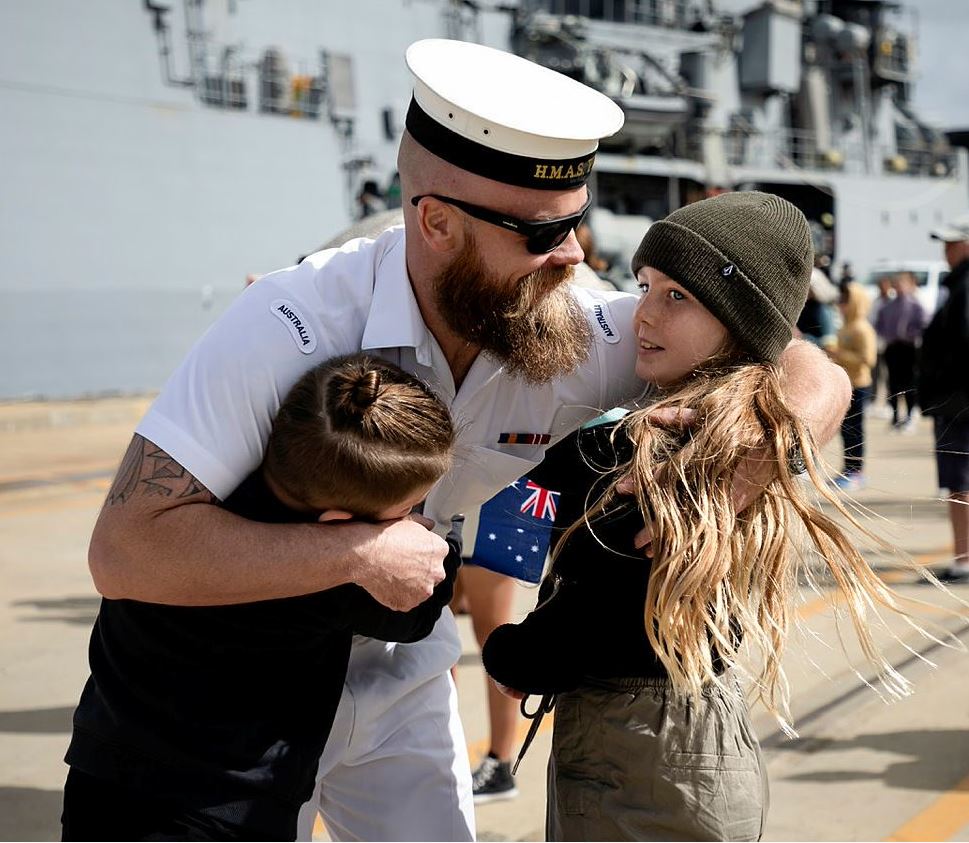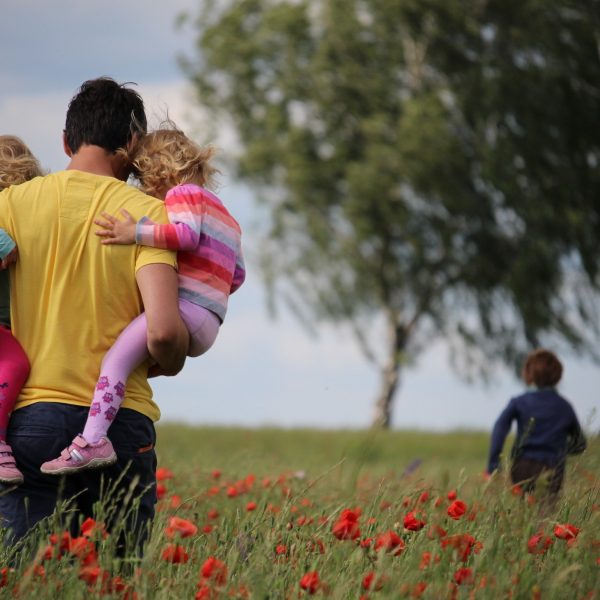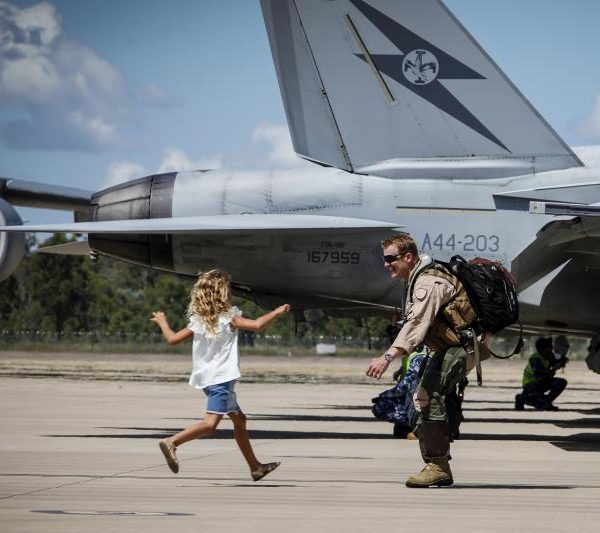The impacts of moral injury on First Responder, Defence and Veteran partners and children

When Australia is faced with the sudden and often unexpected impact of natural disaster and other forms of crisis, citizens typically “look for the heroes” – the brave first responders and Australian Defence Force (ADF) personnel who put their minds and bodies on the line to ensure the safety and well being of others.
Less thought is given to the aftermath of these events, and to the situation of those who support the heroes – the families to whom they go home to debrief, unload, share and be comforted.
The families of the First Responders and Defence personnel who are called on to save lives and property can also be the secondary victims of fire, flood, and other natural disasters – except they are invisible. The secondary trauma experienced by their family members isn’t televised, or even recognised, but the consequences can be lifelong.
Many people are familiar with the more overt forms of psychological damage that hit First Responders, Defence members and veterans, like PTSD and depression. The damage referred to as ‘moral injury’ is less visible, but it can be the precursor to more acute forms of psychological injury.
Moral injury has been defined as “the psychological, social and spiritual impact of events involving betrayal or transgression of one’s own deeply held moral beliefs and values occurring in high-stakes situations”.
In high-stakes situations, people can fail to act in ways that fit armchair values. Compromises may be made. Failure or compromise can weigh heavily on a person’s mental state, with ramifications for all close to them. Or the damage may be incurred more insidiously, as may happen to witnesses of corruption or bullying in service organisations that can lead to Post Traumatic Embitterment Disorder (PTED).
The 2022 Interim Report into the Royal Commission into Defence and Veteran Suicide quoted a veteran who said:
There needs to be recognition of ‘moral injury’ … which has left us with a sense of hopelessness, shame, guilt, loss of identity and no purpose. The self-condemning behaviours and the feeling of betrayal. There is lot of issues where leaders will act and behave a certain way that is creating moral problems for people and that’s manifesting as all sorts of symptoms, numbing suicide behaviours, these people do bad things and get promoted – that needs to change (p. 43).
To build the understanding and resilience of children and partners as they deal with moral injury incurred in the line of duty, Child and Family Resilience Programs (CFRP) is developing a free lived experience and evidence informed eStorybook to help children process their family situation. Multimedia online modules will assist parents, educators and support workers to better understand and support their children and take care of themselves.
The CFRP project was originally conceived because of a lack of age and culturally appropriate resources to support children and partners from Defence and veteran families deal with the stresses of military family life. We know that intervention is a cost-effective way to ensure children not only survive life in these families, but thrive.
New resources
With a grant from the Foundation of Graduates in Early Childhood Studies, CFRP is creating a children’s storybook, founded in Australian research, to help children understand the impact of moral injury on their family. The storybook will be added to the other award-winning storybooks and interactives in this project.
The book will also contain information to help parents, educators and support workers better understand a moral injury’s secondary impacts on family members. This information will be expanded on through three new online learning modules, which will also offer practical strategies for supporting children and self-care for partners.
New partners
The CFRP team is also working with Fortem Australia and Military and Emergency Services Health Australia to adapt earlier modules to include content for First Responder families. They are also co-creating extra activities to support older children and providing links to relevant support services.
All new and adapted resources will be included on the CFRP website to ensure they are part of the free CFRP Personalised Programs resources for parents, educators and support workers.
Australia has 80,000 full-time First Responders, and about a fifth of the nation’s households have a Defence or Veteran member. About 22,500 permanent Australian Defence Force personnel have dependent children.
As adults, most service personnel understand that their work will be confronting, and there are some – if not perfect – systems in place to help them deal with their exposure to traumatic situations. Damage to partners and children has to date been given less recognition, especially the ripple effects of less understood traumas like moral injury.
With this project, CFRP is building acknowledgement that partners and children suffer along with their parents and guardians. Science points to a likely increase in climate-related natural disasters, and it seems sadly unlikely that human-made conflicts will abate. We must do what we can to support these potentially vulnerable families carrying the shocks of their members’ encounters into well-adjusted adulthood.
If you have ideas to contribute to the new resources, please email [email protected]
If this article has raised any upsetting issues for you, please seek support:
- Call 000 if a life is in danger
- Lifeline 13 11 14 (24-hour support for all Australians)
- Beyond Blue 1300 224 636 (24-hour support for all Australians)
- 13 YARN 13 92 76 (24-hour Australian Indigenous support)
- Kids Helpline 1800 551 800 (phone and webchat support for children and young people aged 5-25)
- Open Arms (DVA) 1800 011 046 (24-hour support for Defence and Veteran members and their family or carers)
- Fortem Australia 1300 339 594 (First Responder support and programs during office hours)
- Everymind Minds Together is an online program for the family and carers of paramedics. Everymind also has general suicide prevention resources.
Popular

Workforce
Policy
Quality
Practice
Provider
Research
ECEC must change now, our children can’t wait for another inquiry
2025-07-02 07:47:14
by Fiona Alston

Workforce
Practice
Provider
Quality
Research
Supporting successful transitions: Big moves, big feelings
2025-06-26 11:00:30
by Fiona Alston

Practice
Quality
Research
When joyful autonomy matters so much more than curriculum outcomes
2025-06-25 09:30:36
by Contributed Content













